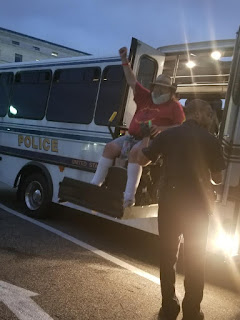After 33 years in Midtown the Memphis Center for Independent Living is moving. Our mission is to facilitate the full integration of persons with disabilities into all aspects of community life and it will remain our motivation and passion.
“The staff is excited about the move,” said Sandi Klink the Executive Director of MCIL, “and I am excited about the new location and the new opportunities for the Center.”
Since 1985 MCIL has been the center of a network of action, information, and resources to assist people with disabilities to conquer the barriers, overcome isolation and end dependency of people with disabilities. MCIL encourages people with disabilities to work with staff and peers with disabilities to build a new accessible welcoming community.
MCIL is moving this week 810 Clark Tower, 5100 Poplar Ave., Memphis, TN 38137.
“The Center began in midtown Memphis and has long been associated with the area,” said Tim Wheat the Program Director. “The Center is not moving out of midtown as much as MCIL is working to embrace all of Shelby county and looking to serve more of the Midsouth. We will miss our neighbors but we hope to make new friends and reach more people with disabilities looking for independence.”
“The Center began in midtown Memphis and has long been associated with the area,” said Tim Wheat the Program Director. “The Center is not moving out of midtown as much as MCIL is working to embrace all of Shelby county and looking to serve more of the Midsouth. We will miss our neighbors but we hope to make new friends and reach more people with disabilities looking for independence.”
MCIL has a long history of advocacy for citizens with disabilities and is mostly known for support for accessible transportation, fair housing and promoting the Americans with Disabilities Act. MCIL has worked to provide people with disabilities options to living in facilities and institutions and offers a transition program to assist people to live in their own home rather than an expensive institution.
People with disabilities are a powerful and significant part of our community, yet; as a group, our social roles have been marginalized by bigotry, discrimination, poverty, isolation, dependency and pity. Americans with disabilities have not had access to transportation, housing and employment that other citizens have enjoyed; MCIL will change that.
The office on Madison will be closed October 1, but MCIL will still be available on the phone 901-726-6404 and on web www.mcil.org. Tuesday, October 9 MCIL plans to have moved operations to Suite 810 at Clark Tower and the Center will hold our annual silent auction and open house there on December 7, 2018.





